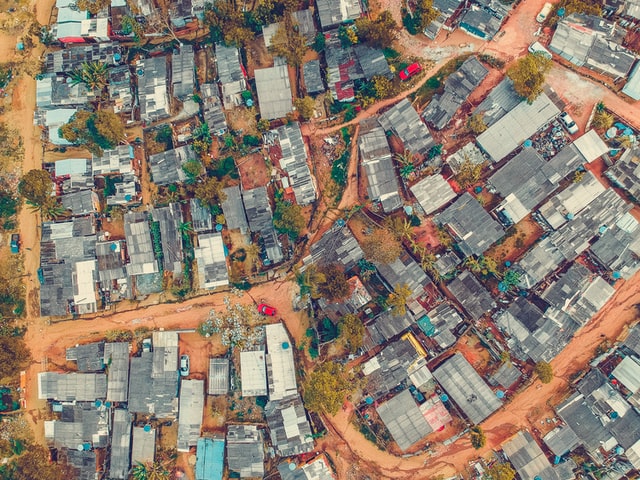Series 2 (June) - Webinar 1

Favela do Grajaú, Município de São Paulo, Brazil. Photo by sergio souza on Unsplash
COVID-19 Challenges and Responses in Informal Settlements
Thursday June 4, 2.00 - 3.30 pm CET
Series 2 (June) - Webinar 1
This webinar is part of the initiative '2020: A Year without Public Space under the COVID-19 Pandemic'.
>>> Read the summary of this webinar
Hosts & Moderators
Gregor H. Mews, Queensland University of Technology / Urban Synergies Group, Brisbane, Australia
Hendrik Tieben, The Chinese University of Hong Kong, School of Architecture, Hong Kong
Event managers
Stephanie Cheung & Yin-Fen Chen, The Chinese University of Hong Kong
Speakers
Rasmus Bering, Dreamtown, Copenhagen, Denmark
KT Suresh, Senior National Lead, Urban & Labour, Action Aid India
Josephine Mwongeli Malonza, University of Rwanda, Kigali, Rwanda
Tatenda Churu and Casper Chigama, House of Art Association, Harare, Zimbabwe
Round table discussion
a) What are the top three challenges you face professionally in the informal context?
b) How can we as a design community enable a paradigm shift in the way we produce spaces that enables positive ripple effects in informal settlements and beyond?
c) What are the benefits of having an evidence-based approach as part of your public space projects?
Q&A Session - engagement with the audience, managed by Yin-Fen Chen, The Chinese University of Hong Kong.
***
Rasmus Bering is the CEO and Co-founder of Dreamtown. Rasmus started Dreamtown 10 years ago when he was living in a small slum community in Freetown where he experienced first hand the need for progressive youth led development focused on public space in informal settlements and slums. Besides Dreamtown Rasmus has worked for a number of international NGOs, including Plan International and Concern Worldwide.
K T Suresh or “KT” as he is known, for the last 30 years has worked with a variety of organizations, enabling them to develop leadership and/or to, initiate, sustain and institutionalize change. Some of the interventions KT has been part of are: Action Aid - currently leads the national work on urban and labour – previously Executive Director - YUVA, Mumbai, National Director Amnesty International India and Coordinator EQUATIONS. His current work includes securing rights and sustainable livelihood through collective action and education for people dependent on the informal economy in India. He is the Course Director of Urban Action School - Established in 2015, the UAS is a part of the Citizens’ Rights Collective of ActionAid, India. A platform for synthesizing cutting-edge knowledge with grassroots practice. Urban Action School (UAS) is a school for mid to senior level urban practitioners specialising in issues related to Urbanisation and Cities, related to India and the Global South. As the urban policy hub of ActionAid, CiRiC’s focus on urban issues is informed by frameworks of citizenship rights, gender parity.
Josephine Malonza holds a PhD in Architecture (Doctoral thesis focus was "Bringing life into urban public space") and is a Lecturer at the University of Rwanda. She is an enthusiastic and curious architect and urban designer keen on the dialectical relations between Architecture and Society. The empathic engagement with architectural and urban design makes her particularly passionate about quality of life in urban areas. As an architect, she believes that for the spaces architects and urban designer create to serve their users, they ought to be in harmony with the respective cultural identity and aim to improve living conditions and sustainable development. She is a passionate researcher on urban studies, who believes that the city is made to enhance the connectivity between people, goods, services and above all ideas. Has numerous research papers on public space, morphology of the city and urban sustainability. She is familiar with working at grassroots/community level and an advocate for participatory processed of urban development. Her consistent engagement with action-oriented research has seen her work widely published.
Tatenda Churu (28) and Casper Chigama (25) are founders of the Zimbabwean organisation House of Arts Association (HAA). HAA work for reshaping communities through art and plays an active role in creating awareness of corona in informal settlements in Harare.
***
>>> Recorded video of the webinar
All our webinars are recorded and are available on the Youtube channel of our publisher City Space Architecture.
Watch this one and our future videos on City Space Architecture's Youtube playlist '2020: A Year without Public Space under the COVID-19 Pandemic'.

